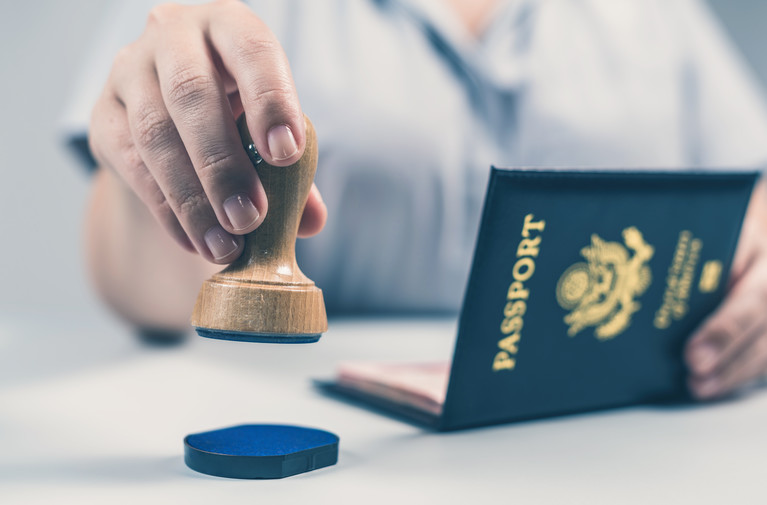Trump Administration Asks Supreme Court to Revive Transgender Passport Policy: A Battle Over Gender Markers and Rights
In a high-stakes escalation of the Trump administration’s push against transgender recognition, the Justice Department petitioned the U.S. Supreme Court on September 19, 2025, to lift a lower court injunction blocking a controversial passport policy. The rule, enacted earlier this year, mandates that passports reflect only male or female sex designations based on birth certificates, effectively barring transgender and nonbinary individuals from using markers aligned with their gender identities or an “X” option.
This emergency appeal comes amid a flurry of Trump-era restrictions on LGBTQ+ rights, testing the conservative justices’ appetite for federal overrides on identity documents. As the administration argues the policy upholds “biological reality,” critics decry it as discriminatory overreach, forcing transgender Americans into a bureaucratic nightmare that endangers travel and privacy.
The Policy’s Origins: From Executive Order to State Department Directive
The passport rule stems from an executive order President Trump signed on Inauguration Day, January 20, 2025, directing federal agencies to limit recognition of transgender identities to “immutable biological classifications.” The State Department swiftly implemented it, reversing decades of precedent: Since the early 1990s, transgender applicants could update markers with medical evidence; a 2021 policy under Biden added the “X” option for nonbinary folks.
Under the new guidelines, applications mismatched with birth certificates are rejected or altered—prompting real-world fallout. Transgender actor Hunter Schafer revealed in February 2025 that her renewed passport arrived with a male marker, despite years of female designations on her driver’s license. Plaintiffs report delayed approvals, invasive scrutiny, and fears of outing during international travel.
The administration frames this as administrative efficiency, claiming self-identification leads to “inaccuracies” in official records. But advocates like the ACLU argue it violates Fifth Amendment equal protection, rooted in “irrational prejudice.”
Court Battles: From District Injunction to Appeals Circuit Rejection
Litigation ignited in April 2025 when seven transgender, nonbinary, and intersex plaintiffs—represented by the ACLU—sued in Boston’s U.S. District Court. U.S. District Judge Julia Kobick, a Biden appointee, issued a preliminary nationwide injunction on June 15, 2025, halting enforcement. She ruled the policy “arbitrary and capricious,” failing rational basis review and reflecting unconstitutional animus toward transgender people.
The First Circuit Court of Appeals, in a September 4, 2025, decision by a panel of Biden appointees, denied the administration’s stay request, upholding Kobick’s order. The panel faulted the government for not addressing claims of bias and for treating the executive order as unreviewable—despite Supreme Court precedents like Trump v. Hawaii allowing scrutiny of discriminatory policies.
Solicitor General Elizabeth Prelogar, in Friday’s Supreme Court filing, urged an immediate stay, warning the injunction forces issuance of “tens or hundreds of thousands” of “inaccurate” passports, undermining national security and uniformity. She invoked the Court’s June 2025 ruling in United States v. Skrmetti, which upheld Tennessee’s ban on youth gender-affirming care, arguing heightened scrutiny doesn’t apply here.
A decision on the stay could come within weeks; full merits review might follow in 2026.
Broader Context: Trump’s Transgender Policy Onslaught
This passport fight fits Trump’s second-term pattern of rolling back LGBTQ+ protections, echoing his first administration’s transgender military ban (upheld by the Court in 2019). Recent moves include executive orders slashing transgender health research funding, relocating trans women inmates to men’s facilities, and challenging Title IX expansions for school sports.
The policy revives a 2018 State Department proposal under Secretary Mike Pompeo, abandoned amid backlash. Now, with a 6-3 conservative majority—including Trump appointees Gorsuch, Kavanaugh, and Barrett—the administration eyes a friendly forum. Yet, even conservative justices like Gorsuch (author of the 2020 Bostock ruling affirming trans rights under Title VII) have signaled limits on blanket discrimination.
Reactions: Outrage, Support, and Expert Takes
LGBTQ+ advocates erupted in condemnation. ACLU senior counsel Jon Davidson called the policy “unjustifiable discrimination” that restricts “essential rights” like safe travel. GLAAD decried it as part of “escalating attacks” on trans lives, with trans Rep. Sarah McBride (D-Del.) vowing congressional oversight.
Conservative voices cheered. Family Research Council President Tony Perkins hailed the appeal as defending “truth and biology” against “gender ideology.” On X, #ProtectBiology trended among right-leaning users, while #TransRightsAreHumanRights drew millions of views from supporters sharing stories of passport denials.
Legal experts are split. Harvard’s Laurence Tribe predicted a likely stay, citing the Court’s deference to executive immigration powers, but warned of a fractured merits opinion. Lambda Legal’s Kevin Jennings noted the policy’s “classwide” impact could affect 1.6 million trans Americans, per Williams Institute estimates, amplifying urgency.
Implications for Everyday Americans: Travel, Privacy, and Politics
For transgender and nonbinary citizens, the stakes are personal: Mismatched passports risk harassment at borders, job discrimination, or family estrangement—exacerbating a 40% suicide attempt rate in the community. A revived policy could strand applicants abroad or force costly legal fixes.
Broader U.S. impacts? It fuels cultural wars, energizing Trump’s base ahead of 2026 midterms while galvanizing Democrats for filibuster-proof protections. Economically, it ties to a $1 trillion travel industry, where inconsistent ID rules could snag business and tourism. Globally, it contrasts with 100+ countries allowing self-ID, potentially embarrassing U.S. diplomats and complicating alliances.
Under Trump’s deregulatory agenda, this signals more clashes—perhaps on driver’s licenses or Social Security—challenging Bostock‘s legacy.
Conclusion: A Defining Moment for Trans Rights at the High Court
The Trump administration’s Supreme Court plea to revive the transgender passport ban crystallizes a profound divide: biological determinism versus self-determination. With emergency arguments looming, the justices hold the power to affirm or dismantle a policy blending security claims with identity erasure. As plaintiffs fight for dignity on paper, the ruling could echo far beyond borders—shaping a nation’s soul on who gets to be who they are. For now, the status quo holds: Passports as chosen, not coerced. Trump transgender passport policy, Supreme Court trans rights appeal, gender marker passport ban 2025, ACLU transgender lawsuit, Trump executive order LGBTQ.
